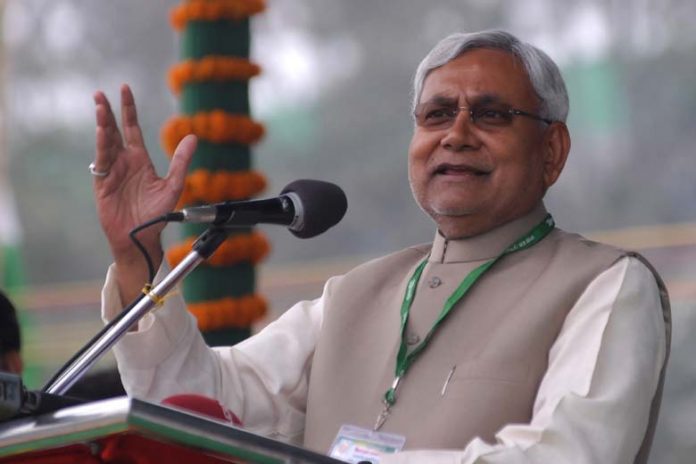Sami Ahmad, TwoCircles.net
On June 5, the Bihar government issued two official notifications – announcing the appointment of 28 public prosecutors (PPs) and 27 government pleaders (GPs). What stood out starkly and sparked immediate backlash was that not even one of the 55 law officers belonged to the Muslim community. This glaring absence has unsettled many, especially considering Chief Minister Nitish Kumar’s repeated claims of championing the interests of the minority community.
Unfortunately, this is not an isolated instance. Just weeks earlier, in May, two separate lists of newly appointed sub-divisional magistrates (SDMs) were released. Again, no Muslim names appeared on either list.
These patterns have stirred concern and raised uncomfortable questions. Is Bihar’s administration being reshaped, much like Uttar Pradesh’s, into a space devoid of Muslim representation in crucial field postings?
There is more than enough evidence to feed this fear. According to state records as of May 23, 2025, Bihar has 101 SDMs. Of these, only one is a Muslim.
The state comprises 38 districts, and district magistrates (DMs) serve as the administrative heads of these regions. Out of the 38 DMs, just one is a Muslim, according to the General Administration Department’s updated list as on May 31, 2025. This lone officer is posted in the relatively small district of Sheikhpura.
The numbers don’t improve in law enforcement. Bihar has 40 police districts, each led by a superintendent of police (SP) or senior superintendent of police (SSP). Only two of these are Muslims, with one posted in the minor district of Arwal.
Similarly, among the 38 deputy development commissioners (DDCs), officials who also serve as CEOs of district boards and play an important role in rural development, just one is a Muslim.
Out of nine divisional commissioners overseeing larger administrative zones, only one belongs to the Muslim community. And across the nine police ranges in the state, not a single deputy inspector general (DIG) is a Muslim.
This consistent lack of representation has drawn criticism from various quarters. Kunal, state secretary of the CPI (ML)-Liberation, told TwoCircles.net, “Nitish has never been serious about increasing the representation of the Muslim community in key posts of the administration. It has always been lip service.”
A senior JD(U) member who worked closely with former Chief Minister Jitan Ram Manjhi, pointed out on strict condition of anonymity, deeper systemic issues.
“Nitish Kumar relies heavily on ex-bureaucrats, many of whom hold communal biases. Moreover, several top leaders in the ruling Janata Dal (United) or JD(U), aside from the influence of the Bharatiya Janata Party (BJP), are not enthusiastic about placing Muslim officers in prominent positions,” he said.
He added that the trust gap between the Muslim community and the JD(U) leadership widened significantly after the party’s support for the contentious Waqf (Amendment) Bill – despite strong opposition from the Muslim community and even JD(U)’s own Muslim leaders.
Coupled with Nitish Kumar’s shifting stance on critical issues like the triple talaq law and the Citizenship Amendment Act (CAA) has only deepened the alienation.
Additional Advocate General Khurshid Alam called the recent PP and GP appointments deeply troubling. “In my 35 years of practice, I have never seen appointment lists that excluded Muslims entirely,” he said.
He further pointed out that the issue of underrepresentation extends beyond the judiciary. Muslim advocates are scarcely present in universities, boards and public corporations. “Their presence is often less than one percent,” he said.
Senior journalist Abdul Qadir offered another perspective. He suggested that Nitish Kumar’s deteriorating health has led to a loss of direct control over governance.
“Key decisions are now taken by a small coterie of opportunist politicians, bureaucrats and time-servers. It is they who are really running the show,” he said.
He recalled how Nitish once withstood intense pressure while appointing Amir Subhani, the state’s first Muslim chief secretary. “But that was a different time. Things have changed drastically. This is the new Bihar,” he added.
Kunal believes that the BJP’s growing influence in the state is the root of the problem. “The BJP is no longer content being a partner; it is trying to run the state from behind the scenes. This exclusion of Muslims from administration is not accidental, it is part of a larger plan to isolate, intimidate and marginalise the community. It is a blatant attempt to relegate Muslims to second-class citizenship. It is especially painful given the community’s historic role in the freedom struggle,” he concluded.
Even as some argue that Muslim officers have not always effectively uplifted their own communities, Abdul Qadir stresses that their absence in governance sends a dangerous message. “The representation might be symbolic, but symbols matter, especially in a diverse society. This exclusion undermines the very social fabric of our bureaucracy,” he said.
When approached for comment, JD(U) spokesperson Niraj Kumar did not respond. Another party spokesperson Anjum Ara said she would need to verify the numbers but reiterated that the JD(U) believes in social justice and the proportional inclusion of all communities.
Akhtarul Iman, the sole MLA from the All India Majlis-e-Ittehadul Muslimeen (AIMIM), referred to the findings of Bihar’s recent caste survey, which recorded Muslims as comprising 17.7% of the state’s population.
“Based on that percentage, the community should hold at least six-seven positions among the DMs, SPs and DDCs. It is tragic that, out of 101 SDMs, only one is Muslim,” he said.
The numbers tell a troubling story, and the silence from those in power only amplifies it.


